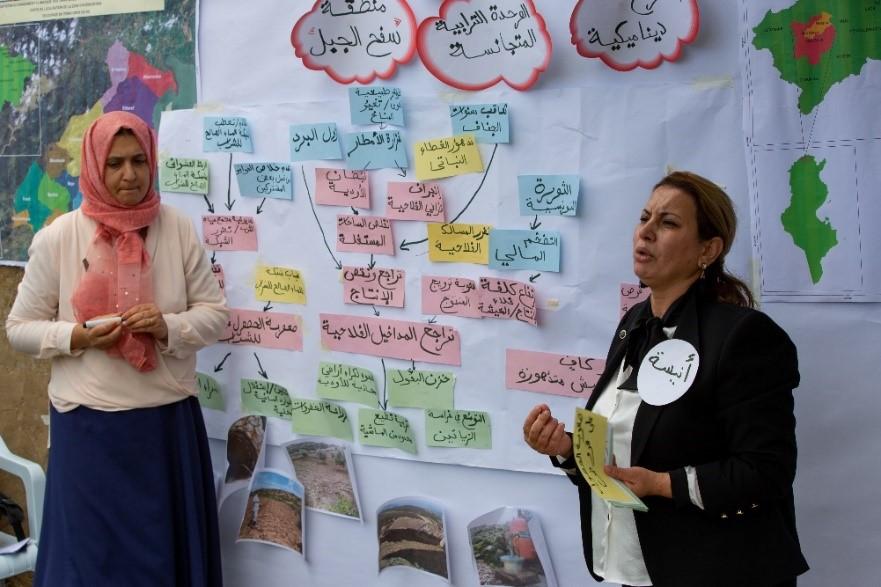- Home
- Worldwide
- CIRAD worldwide
- Projects
- PACTE project
Programme of adaptation to climate change in vulnerable territories in Tunisia - PACTE

Workshop to present the results of the territorial diagnosis in Bizerte © Abdel Belhadi
Issues
Changes in ecosystems, societies and rural territories resulting from climate change and globalization can exacerbate competition between types of land use and trigger conflict around land tenure and certain resources that are either limited or have high potential for added value. Helping societies manage and develop their territories means engineering consultation, planning, and resource management, taking account of the viewpoints, objectives and constraints of the whole range of different stakeholders. These issues are particularly significant in the current context in Tunisia, which has undergone substantial socio-political change since 2011 and faces substantial threats from climate change in terms of its limited vital resources (particularly water and soil).
Description
The programme is working for the sustainable development of rural territories that are particularly vulnerable on a socioeconomic and environmental level. It is planning to fund sustainable natural resource management operations and support the economic development of agro-silvo-pastoral value chains and mechanisms aimed at ensuring more efficient territorial governance.
CIRAD is involved in establishing a network of multi-stakeholder platforms for the production and sharing of knowledge on the country, public debate on development issues, and concerted planning and monitoring-evaluation of investment, notably in the following three fields:
- Methodological support, leadership of a process of co-design and support of the implementation of the "platforms" structure in the five governorates targeted by the programme;
- Training and capacity building for staff members from the Tunisian authorities and local platform stakeholders;
- Scientific and technical assessments in relation to the framing and realization of investments.
Expected impacts
- Farmers will have adopted more sustainable practices and rational collective resource management methods that will limit natural resource degradation.
- Producers in the territories concerned will obtain a better financial return on their products, and farming families' quality of life will have improved.
- Implementation of decentralization policies will have been facilitated, natural resource governance will have improved, and vulnerable rural territories will be more resilient to climate change.
Contract partners
Direction Générale de l'Aménagement et la Conservation des Terres Agricoles (DG-ACTA), INAT (Institut National Agronomique de Tunisie) and INRGREF (Institut National de Recherche en Génie Rural et Eaux & Forêts).
























